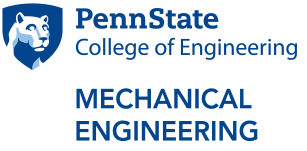Gas Turbine Seminar Series: Control of Instabilities in Jets in Cross Flow
Abstract: Complex flow phenomena are widely present in systems involving energy generation and propulsion, and control of such fundamental phenomena is key to development of efficient, robust systems. This talk will describe research at UCLA on flow instabilities and their control, in the spirit of this fundamental approach, with a focus on the canonical gaseous jet in crossflow (JICF) or transverse jet. New insights into JICF shear layer stability characteristics have created the potential for tailored flow control which can alter jet dynamics, molecular mixing and other important features of the jet flow. Quantification and interrogation of the flowfield involves use of acetone planar laser-induced fluorescence (PLIF) imaging and simultaneous stereo particle image velocimetry (PIV) as well as hot wire anemometry. Transitions in shear layer instabilities from convective to absolute instability are observed to depend on specific flow conditions, with attendant alterations in jet structure and symmetry that can have a significant effect on mixing metrics. These fundamental stability characteristics require alternative methods for jet control, depending on the flow regime, which can optimize performance of the jet in various applications.
Biography: Ann Karagozian is a Distinguished Professor and the Collins Aerospace Term Chair for Innovation in the Department of Mechanical and Aerospace Engineering at UCLA. Her research interests lie in fluid mechanics and combustion as applied to advanced rocket and air breathing propulsion systems. She is the Director of the UCLA Energy and Propulsion Research Laboratory, the UCLA-Air Force Research Laboratory Collaborative Center for Aerospace Sciences, and is the Inaugural Director of the privately endowed UCLA Promise Armenian Institute. Professor Karagozian is a member of the Defense Science Board and was a member of the Air Force Scientific Advisory Board for over 15 years. She is also a Member of the National Academy of Engineering, and is a Fellow of the AIAA, the American Physical Society, and the ASME. She received her B.S. in Engineering from UCLA and her M.S. and Ph.D. in Mechanical Engineering from the California Institute of Technology. 1977) degrees.
Additional Information:
Only on Zoom. Register to attend.
Event Contact: Jacqueline O'Connor


